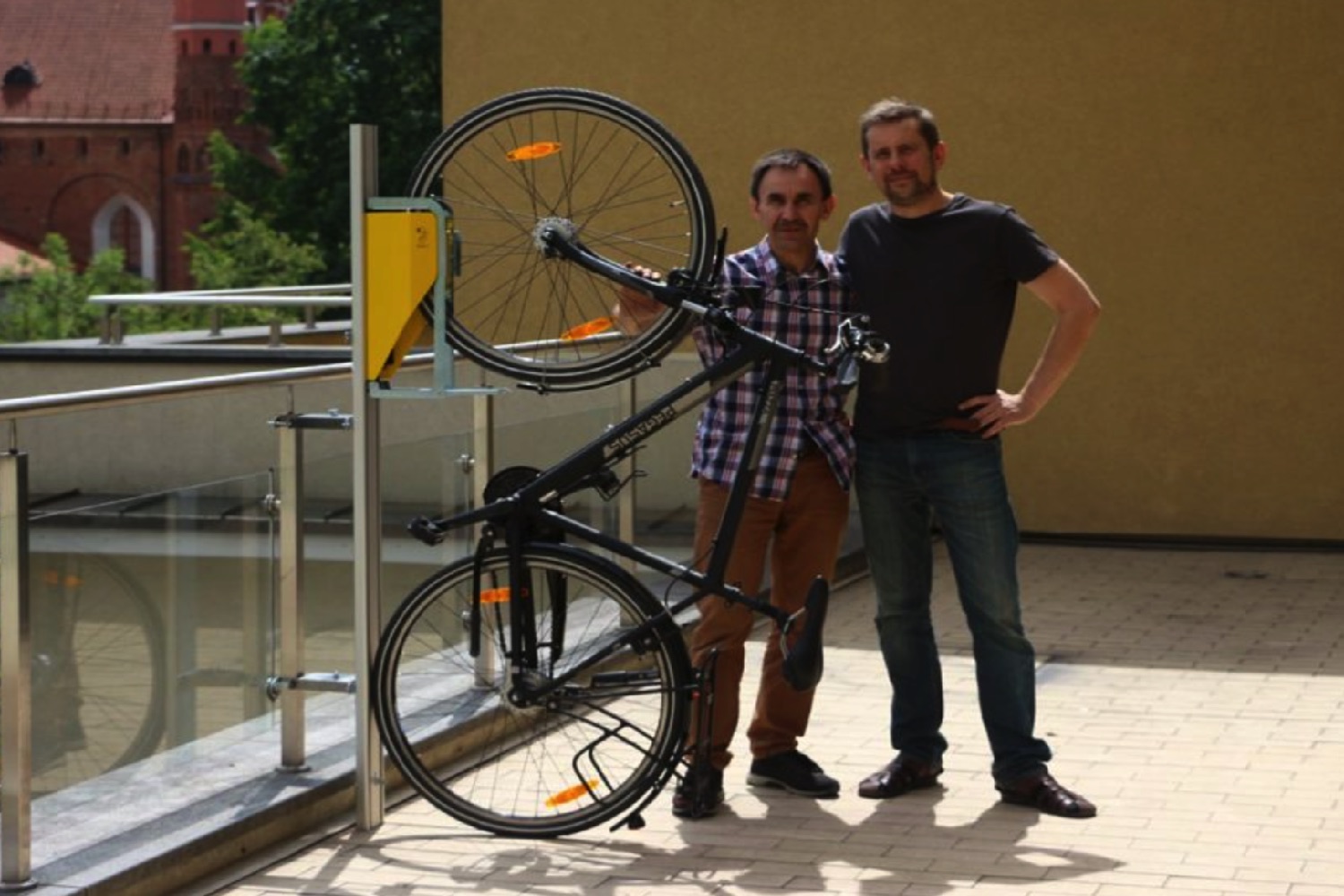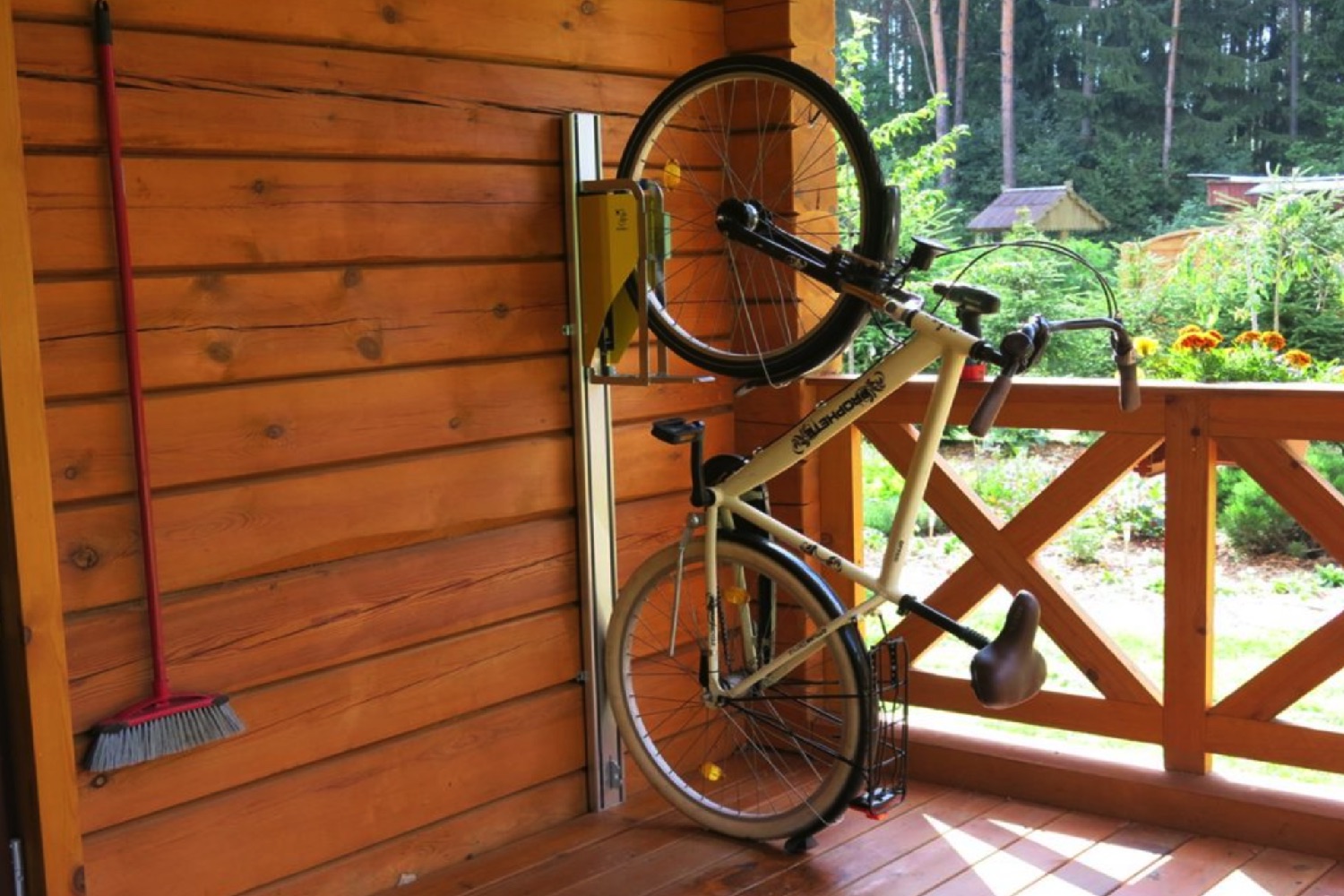That’s where Parkis, a smart space-saving solution for cyclists — try saying that five times fast — comes in. Hailing itself as the world’s “first effortless vertical bike-parking system,” the nifty concept promises to save you floor space by letting you store your bike vertically — and without having to have the physically lift it up.
“The idea for the product came from my co-founder,” Parkis co-creator Vygantas Radvila told Digital Trends. “He had moved from a house to a flat, and found that he was stuck with five bicycles and no space. He went searching for a solution in terms of equipment that could help lift up his bikes for storage. He couldn’t find anything, however. As a result, he started designing a solution just for his own use — and that’s what turned into Parkis. It was only later on that we decided that this was something to commercialize.”
To use Parkis, all cyclists have to do is to wheel their bike into the built-in dolly front tire first. Once they’ve done this, a spring pulls the dolly up a mounted rail, with the bike coming along with it. Users don’t need to do anything more physical than helping guide the bicycle on its way up.
Retrieving the bike is equally straightforward — all users have to do is gently pull on the saddle, which will cause the dolly to return to its original position on the ground so the bike can be backed out.
“We wanted to create something entirely mechanical, meaning that it wouldn’t need any power source or electricity to work,” Radvila continued.
Parkis is available in both original yellow and metallic options, and is currently raising funds on Kickstarter to help bring it to bike owners around the world.
A pledge of 239 euros ($256 U.S.) will secure you an original yellow Parkis, while a metallic “luxury” option costs a bit more. A limited number of units will ship next month, while the majority will arrive in March 2017.
Would you forgive us for saying we’re wheel-y excited?







